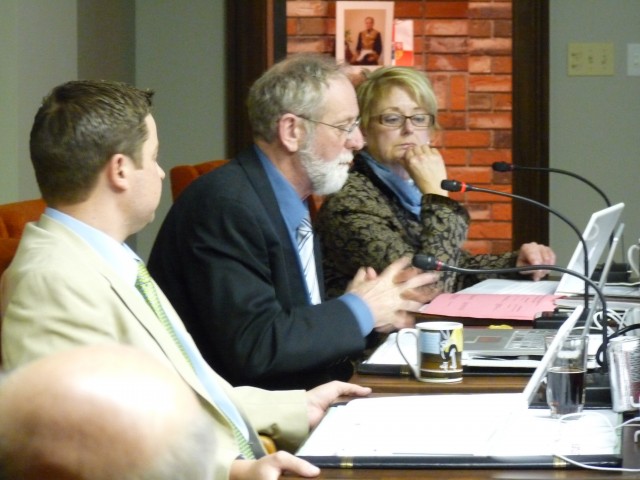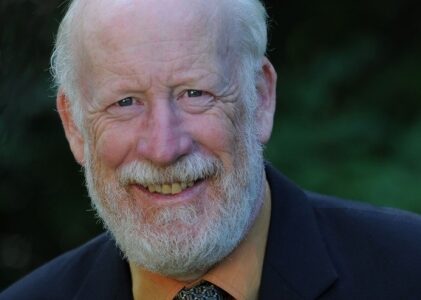Trails project a go despite defeat of AAP
It’s official. The financing proposal for the continued construction of paths around the city of Grand Forks, B.C. has been defeated by the local residents. But at their last meeting, city council approved an alternate plan to be able to match the funding from the federal government in order to proceed with the project as planned. With a near full gallery on hand, council had to consider options to proceed with the project in advance of the closing of the alternate approval process (AAP). Many of the people present spoke to the council of their support for the alternate transportation system or trails project.
“Building recreational infrastructure is good for the city,” said Becky Dean. “It will make it easier for people of all ages to move around the community without relying on the automobile for transport. It will encourage walking and cycling and will promote a healthy, active lifestyle for citizens of all ages. It would seem that both provincial and federal governments agree that this is a good thing as (both grant applications) were approved. Not only were they approved, they were approved for the full amount as requested. (If they are lost) that’s over $1.6 million that will not be spent in Grand Forks, and will not provide employment. Grand Forks needs a vision for how it will grow and develop for the future. We need to think carefully about how we present ourselves to tourists and potential new residents.”
The AAP that would allow the city to access low cost financing for their contribution to the trails project ($702,667) was defeated on Jan. 27 by over 300 signatures, confirmed Cecile Arnott, the city’s chief financial officer. But the motion by city council on Monday, Jan. 25, gives the staff the ability to proceed with the project with finances secured by funding from the slag reserve fund or the community works fund. Their motion also included a commitment to replenish the slag reserve over the next 25 years.
Councillor Chris Moslin explained the decision the council was faced with at the meeting. “It’s really critical to make sure council handles this type of project successfully and with economy. I know this type of project is the culmination of many years of effort by volunteers, corporations and governments and that it doesn’t just land in our laps overnight,” said Moslin. “(This type of project) is one that the community can be proud of, and one that does make our city a memorable city. If the AAP fails, that’s a lost opportunity to get flexibility into the funding. If that is the case, the city, if it wishes to pursue the project, then they have to use our legacy funds. These are funds sitting in our bank account right now earning 2% interest .”
Moslin went on to say that the revenue for the slag reserve average is around $250,000 annually and have been quite reliable for many years. He would rather see the reserves used to invest in valuable infrastructure than sitting earning the low interest rates that it currently receives. “We’ll be able to take our legacy funds which are sitting in an account earning 2 per cent, and triple them by linking them with two other grants. You do the math. How long does it take you to triple your money at 2 per cent interest? About 90 years.”
The city did not use any of the slag reserve in 2009. Finding a way to ensure that the RINC grant is matched and the trails project moves forward will allow the city to use the Local Motion grant from the province that also needs to be spent before 2012, said Moslin.
The total project cost was initially originally estimated at $2.8 million with funds contributed as follows: federal government Recreation Infrastructure Canada grant $933,333; provincial Local Motion Grant: $700,000; dyking grant: $464,000; and the city $702,667. At the meeting, staff advised that the dyking grant was denied for this year, but the project costs have been reduced to $2.136 million to be able to move forward without the additional grant.
Both Councillors Christine Thompson and Joy Davies spoke in favour of the motion while Councillor Gene Robert expressed some questions about the long-term impact of the use of the reserve funding. But when it came to a vote the council expressed unanimous support for the proposed use of funding. The trails project will now move forward.






















